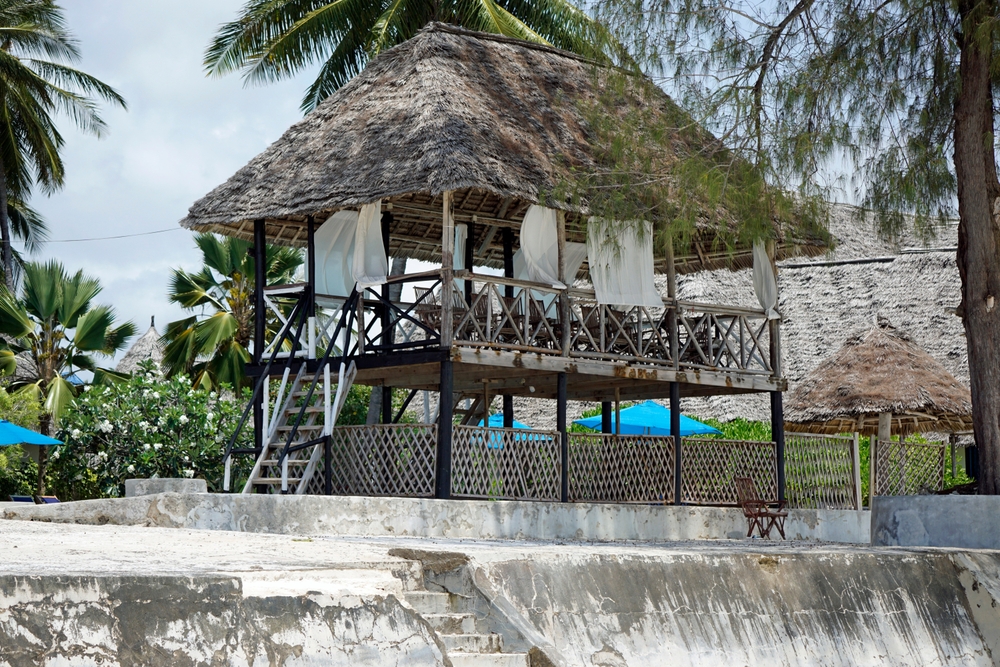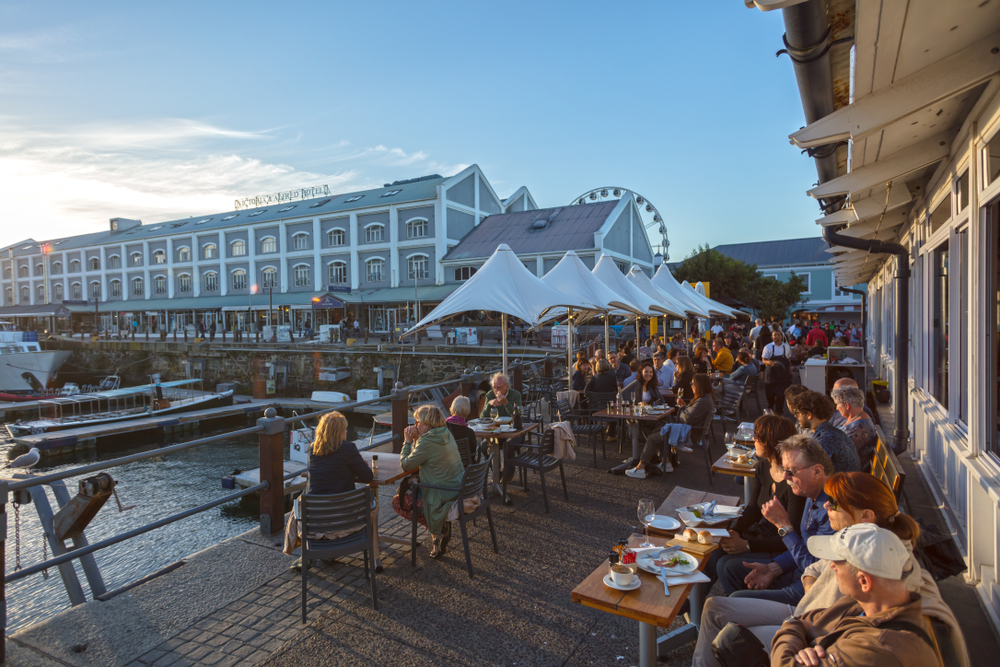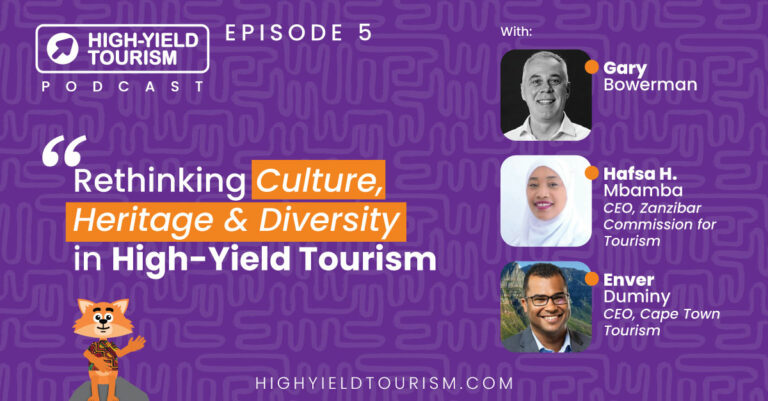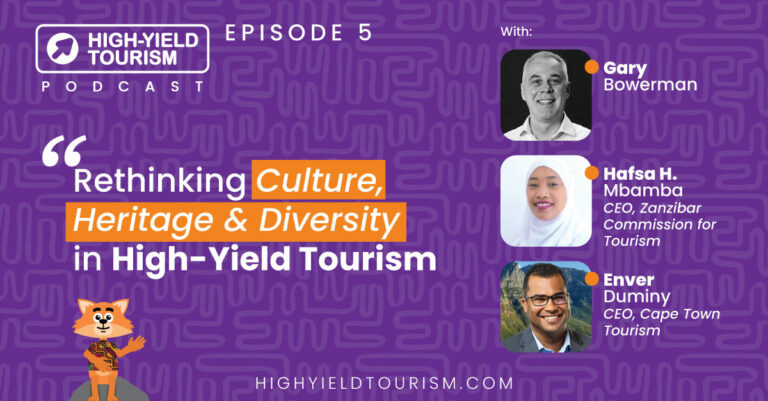Cultural Stewardship in Tourism: Balancing Preservation and High-Yield Growth
Let us explore the central themes of cultural stewardship and community engagement in tourism. Their relationship with high-yield approaches was discussed in Episode 5 of the High-Yield Tourism Podcast with Gary Bowerman, featuring insights from Hafsa H. Mbamba, CEO of the Zanzibar Commission for Tourism, and Enver Duminy, CEO of Cape Town Tourism. Both shared strategies for ensuring tourism benefits local communities while preserving cultural heritage.
Beyond responsible tourism, we need to underscore how High-Yield Tourism (HYT) can be a transformative force in cultural preservation. By focusing on attracting fewer visitors with more immersive spending, destinations can generate diverse economic benefits and reduce the strain on infrastructure, the environment and cultural assets.
Defining Cultural Stewardship in a High-Yield Context
Cultural stewardship involves a collective responsibility by authorities and communities to protect and sustainably manage a destination’s cultural and heritage assets.
In Zanzibar, this principle is exemplified by the Jambiani community, which has taken control of its tourism narrative by launching its own tour operator. By stepping up, the Jambiani villages ensure that revenue stays within the community and tourism growth aligns with local values.
In Cape Town, cultural stewardship goes beyond preservation. It’s about curating experiences that attract high-yield visitors who engage deeply with local culture. However, challenges like gentrification and rising property prices – fueled by unchecked mass tourism – highlight a need for sustainable visitor management. Cape Town Tourism collaborates with local stakeholders to ensure that growth does not erode the city’s cultural and economic balance.


Moving Toward High-Yield Models
The COVID-19 pandemic reshaped tourism, prompting destinations to rethink their strategies. Even though many destinations have returned to business-as-usual, taking visitor arrivals as their performance indicators, many have seen that this is counter the interest of local stakeholders.
Some destinations have seen protests against visitors due to the loss of in quality of living for locals. Others are taking innovative approaches to create a balance between the need to attract visitors and create livelihoods for residents, rooted in social connectivity.
In Zanzibar, for example, there has been a shift from mass tourism to a more exclusive, experience-based model. The “Green Zanzibar” campaign aligns with High-Yield Tourism principles by promoting sustainability-driven initiatives that cater to travelers seeking authentic cultural immersion rather than just beach vacations.
Cape Town, which already had a long-standing commitment to responsible tourism, now focuses on quality over quantity, ensuring that travelers engage meaningfully with local businesses and cultural sites. The city has redefined success, prioritizing visitor spending, duration, and cultural engagement over arrival numbers.
High-yield tourism models support these approaches, especially when integrated into an overall destination strategy based on visitor economics and resident happiness.
Optimizing Social & Digital Opportunities
While social media can lead to over-tourism and cultural commodification, it also offers opportunities to curate and attract targeted traveler types.
Zanzibar has leveraged local content creators to promote lesser-known, high-value experiences, setting expectations for respectful engagement and higher-value tourism activities.
Cape Town uses digital storytelling to highlight experiences that align with high-yield principles, such as indigenous-led cultural tours, premium gastronomy experiences, and conservation-focused activities.
By appealing to conscientious high-spending visitors, digital marketing strategies ensure that tourism uplifts local communities while minimizing the negative impacts of overcrowding.
Social media is also an flexible tool for collaboration between stakeholders when working on high-yield tourism campaigns, both for visitors and residents.
Taking High-Yield Tourism Forward
Looking ahead, both Zanzibar and Cape Town are integrating High-Yield Tourism strategies into their broader cultural stewardship agendas.
Zanzibar’s national tourism agenda is shifting towards rehabilitating heritage sites and ensuring local communities benefit directly from visitor spending. The focus is on longer stays, premium experiences, and cultural engagement, rather than just increasing tourist numbers.
Cape Town is embedding cultural stewardship into its visitor economy, ensuring that tourism enhances local prosperity while maintaining authenticity. By prioritizing sustainability and quality, the city is repositioning itself as a global leader in High-Yield Tourism.
Conclusion: Cultural Stewardship is a Powerful Driver of High-Yield Tourism
By integrating cultural stewardship and high-yield tourism principles, destinations can generate greater economic impact with fewer visitors, ensuring that tourism development respects local heritage while maximizing community benefits.
Zanzibar and Cape Town are proving that preserving culture and heritage isn’t just an ethical obligation – it’s also a strategic advantage. By shifting towards higher-value experiences, longer stays, and more meaningful visitor engagement, they are paving the way for a new era of sustainable, high-yield tourism.
Overall, destinations recognize the importance of high-yield visitors. If properly applied, this can result in a change of performance measurements at the administrative and political levels of destinations.
To find out how High-Yield Tourism can support your destination to harness cultural stewardship and optimize the full value of your visitor economy, contact us.
Related Content

Episode 5 – Transcript
Transcript of Episode 5 We explore strategies and practices that empower local communities, preserve cultural heritage, and ensure that tourism delivers positive outcomes for both

Episode 5
Episode 5: High Yield Tourism Podcast We explore strategies and practices that empower local communities, preserve cultural heritage, and ensure that tourism delivers positive outcomes

